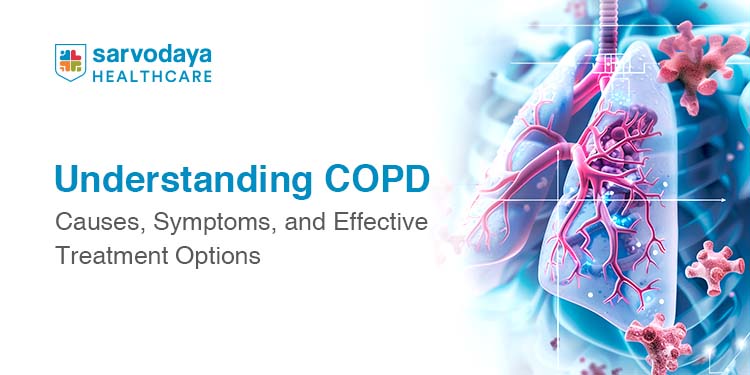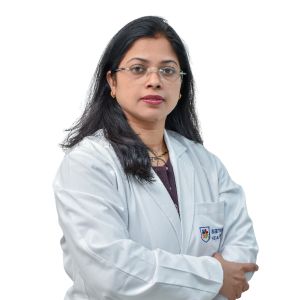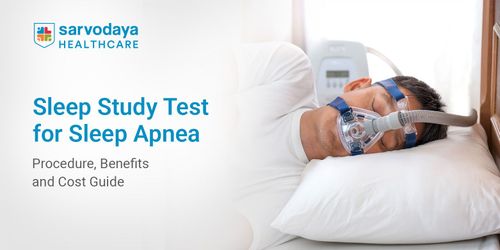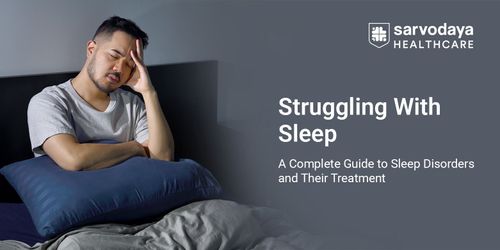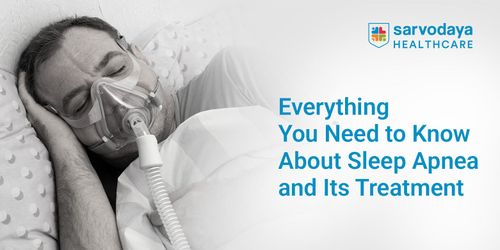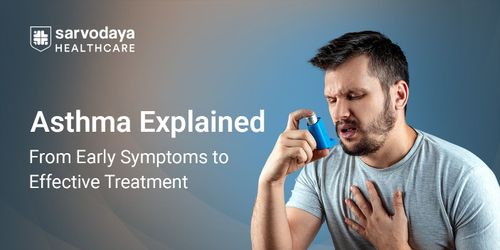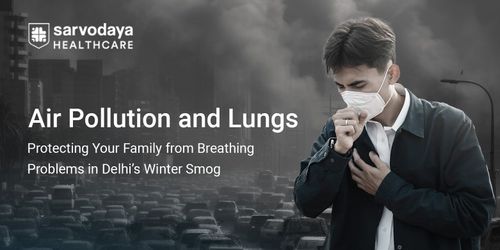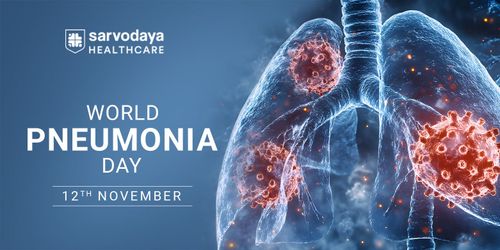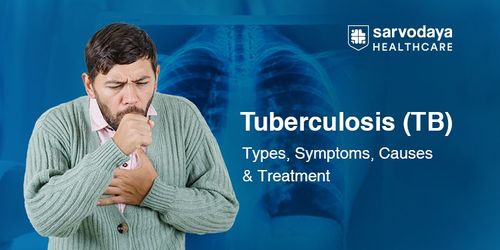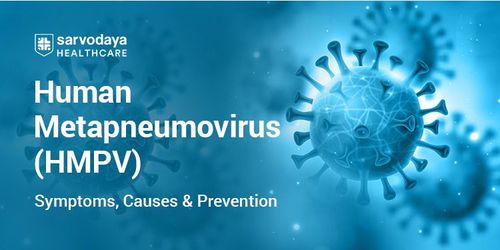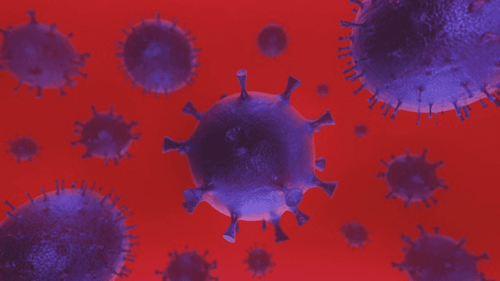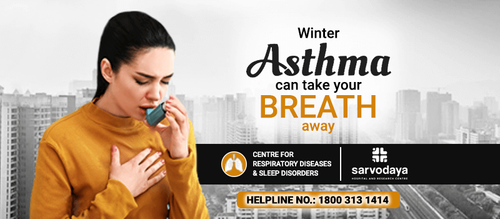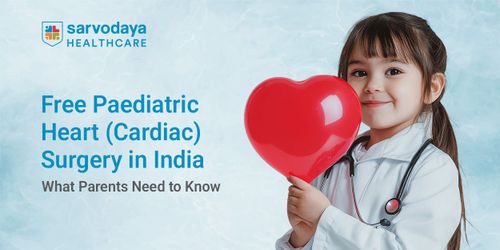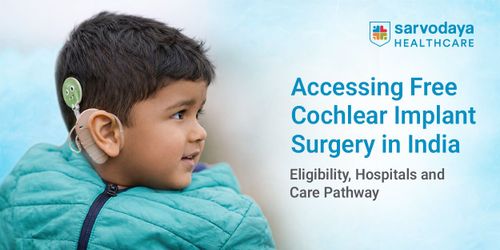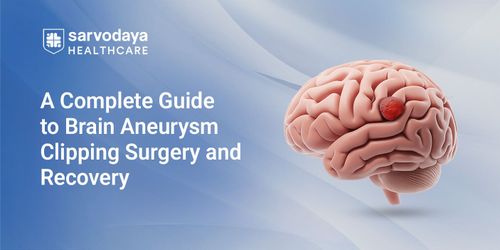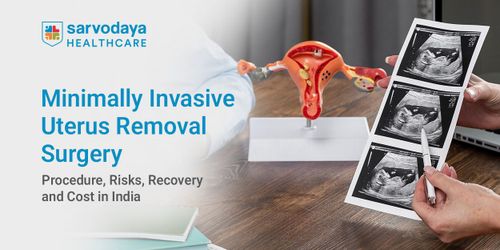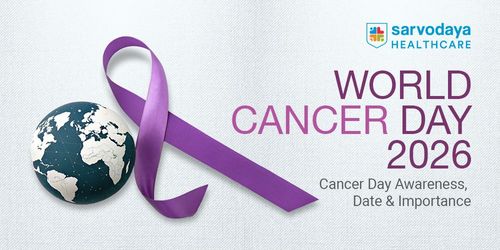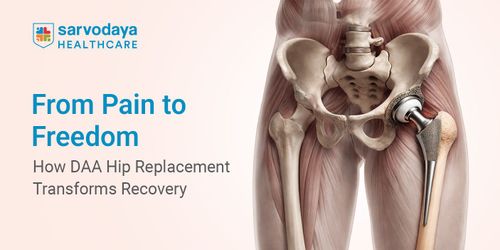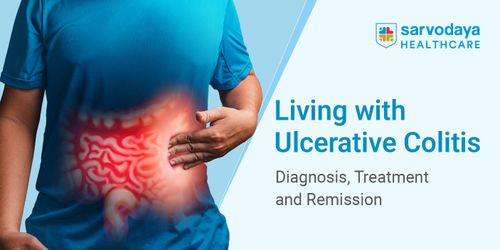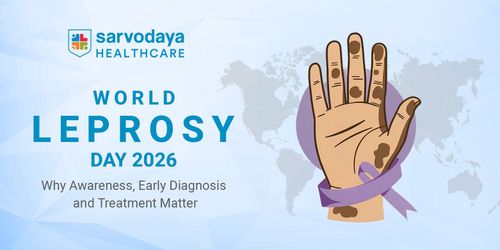In this blog, we will focus on the main parts of COPD, which are its signs, causes, and the types of COPD treatment available.
Understanding COPD
COPD stands for Chronic Obstructive Pulmonary Disease. It is a long-term disease that blocks the airflow in the lungs and makes breathing hard. It causes two main issues: chronic bronchitis and emphysema. In chronic bronchitis, the airways are swollen and filled with mucus. In emphysema, the air sacs in the lungs are damaged and do not work properly.COPD usually affects people who are over 40 years old and have been exposed to smoke or air pollution for a long time.
Common Symptoms of COPD
The signs of COPD often start slowly and get worse over time. Many people mistake the early symptoms for ageing or tiredness, which delays the proper diagnosis and treatment of COPD.These are some common symptoms of COPD:
- A persistent cough, often with mucus
- Trouble breathing, especially while doing physical work
- Wheezing or whistling sound while breathing
- Feeling tightness or pressure in the chest
- Feeling tired all the time
- Getting lung infections often
- Feeling out of breath while doing simple daily tasks
Causes and Risk Factors of COPD
COPD does not happen suddenly. It usually develops slowly over time when the lungs are exposed to harmful substances. These substances damage the lungs and airways, making it hard for air to move in and out of the lungs.Multiple causes and risk factors may lead to COPD. Knowing about them can help people avoid the disease or catch it early.
Here are the main causes of COPD:
- Smoking is the biggest cause of COPD, especially if someone has been smoking for many years.
- Breathing in air pollution, including indoor air from cooking fires or burning wood
- Working around dust, chemicals, or smoke without protection
- Having a genetic condition called alpha-1 antitrypsin deficiency
- Having many lung infections during childhood
The risk factors of COPD are not the same for everyone, but they increase with longer exposure and age. People over 40, smokers, and those with a family history of lung disease should be more careful.
Getting regular check-ups, especially if you have any of these risk factors for COPD, can help you find the disease early and begin the treatment of COPD.
Diagnosis of COPD
Doctors use a few tests to find out if someone has COPD. These tests check how well the lungs are working and help rule out other conditions.Here is how COPD is usually diagnosed:
- Spirometry is a breathing test used to measure the volume of air you can breathe in and out.
- Chest X-rays or CT scans are used to check the condition of the lungs.
- Blood tests help check oxygen levels and rule out infections.
If you think you may have symptoms or risk factors of COPD, do not wait. Getting tested early can help you start the right COPD treatment and prevent future problems.
COPD Treatment Options
Even though COPD cannot be fully cured, the right COPD treatment can help control the symptoms, improve breathing, and slow down the damage to the lungs. With early care, many people with COPD are able to live a better and more active life.The most commonly available treatment options for COPD are:
- Bronchodilators: These are medicines that relax the muscles around the airways and make breathing easier.
- Inhaled corticosteroids: These help reduce swelling in the lungs and control flare-ups.
- Combination inhalers: These include both bronchodilators and steroids in one device.
- Pulmonary rehabilitation: This is a programme with exercise and breathing training to improve lung strength.
- Oxygen therapy: Used when oxygen levels in the blood are too low.
- Surgery: In rare cases, lung volume reduction or a lung transplant may be needed.
- Lifestyle changes: Quitting smoking, eating healthy, and staying active can improve the results of COPD treatment.
It is important to follow the treatment plan regularly. For proper guidance and advanced care, you can consult the best pulmonologist in Faridabad, who can create a plan that suits your health and lifestyle.
Choosing the Right COPD Care Centre
Having the right care team can make a big difference in how well you manage COPD. A hospital that offers both diagnosis and full treatment of COPD under one roof can give you better results and peace of mind.When choosing a hospital, look for:
- Expert lung doctors who have experience with chronic lung diseases
- A full team that includes respiratory therapists and rehab specialists
- Modern machines and tests for accurate diagnosis and tracking
- Support services to help with quitting smoking and making lifestyle changes
Conclusion
COPD is a serious but manageable condition if it is found early and treated correctly. Understanding the symptoms and risk factors of COPD can help you take action before the disease gets worse. By following a regular treatment plan and making healthy lifestyle changes, people with COPD can breathe easier and live better.For those looking for expert care, Sarvodaya Hospital Faridabad is known as the Best Hospital in Faridabad, Delhi NCR. With some of the best pulmonologists in Faridabad and the top chest physicians in Delhi NCR, the hospital provides personalised care, modern lung testing, and long-term COPD treatment support. A preventive consultation here can also help detect early signs of lung damage, giving you a better chance to stay healthy and avoid future complications.
If you or someone you know shows signs of COPD, do not wait. Early diagnosis and the right treatment of COPD can make a huge difference. Breathe easier by choosing expert care at the right time.


